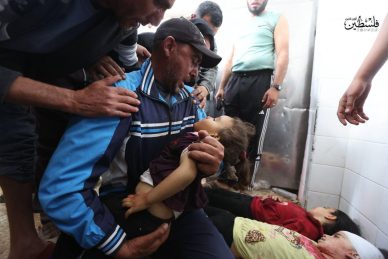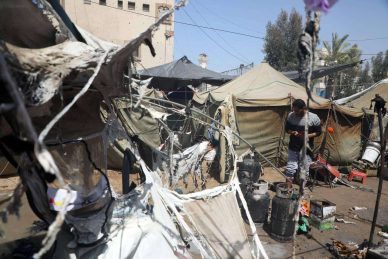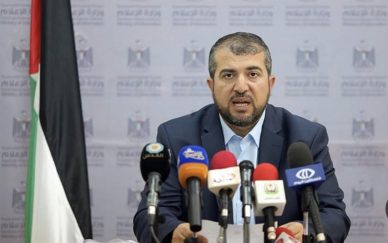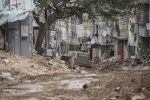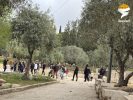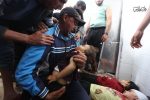LONDON, (PIC)
Amnesty International has accused Israeli forces of failing to take all feasible precautions to avoid or minimize harm to displaced civilians sheltering at camps while carrying out two attacks in Rafah in the south of the Gaza Strip last May.
“These attacks likely were indiscriminate, and one attack likely also disproportionate. Both attacks should be investigated as war crimes,” Amnesty said in a report published on its website on Tuesday.
“On 26 May 2024, two Israeli air strikes on the Kuwaiti Peace Camp, a makeshift camp for internally displaced people (IDP) in Tal al-Sultan in west Rafah, killed at least 36 people – including six children – and injured more than 100,” Amnesty explained.
Amnesty affirmed that the Israeli army used two US-made GBU-39 guided bombs in those two airstrikes. “The use of these munitions, which project deadly fragments over a wide area, in a camp housing civilians in overcrowded temporary shelters likely constituted a disproportionate and indiscriminate attack, and should be investigated as a war crime.”
“On 28 May, in the second incident investigated, the Israeli military fired at least three tank shells at a location in the al-Mawasi area of Rafah which was designated by the Israeli military as a “humanitarian zone”. The strikes killed 23 civilians – including 12 children, seven women and four men – and injured many more.”
Amnesty said its research found that the Israeli army used, on that day, unguided munitions in al-Mawasi area, which is full of civilians sheltering in tents, calling for investigating this “indiscriminate” artillery attack as a “war crime.”
“Several of the civilians killed and injured in the Kuwaiti Peace Camp strikes were hit by metal fragments, including a toddler and a young woman who were both decapitated. Other victims sustained deep cuts and broken limbs. The majority of the civilian casualties verified by Amnesty International were caused by the bombs’ fragments, while others sustained extensive burns. An additional body was so badly burned that it could not be identified.”
“The Israeli military would have been fully aware that the use of bombs that project deadly shrapnel across hundreds of meters and unguided tank shells would kill and injure a large number of civilians sheltering in overcrowded settings lacking protection. The military could and should have taken all feasible precautions to avoid, or at least minimize, harm to civilians,” Amnesty said.


